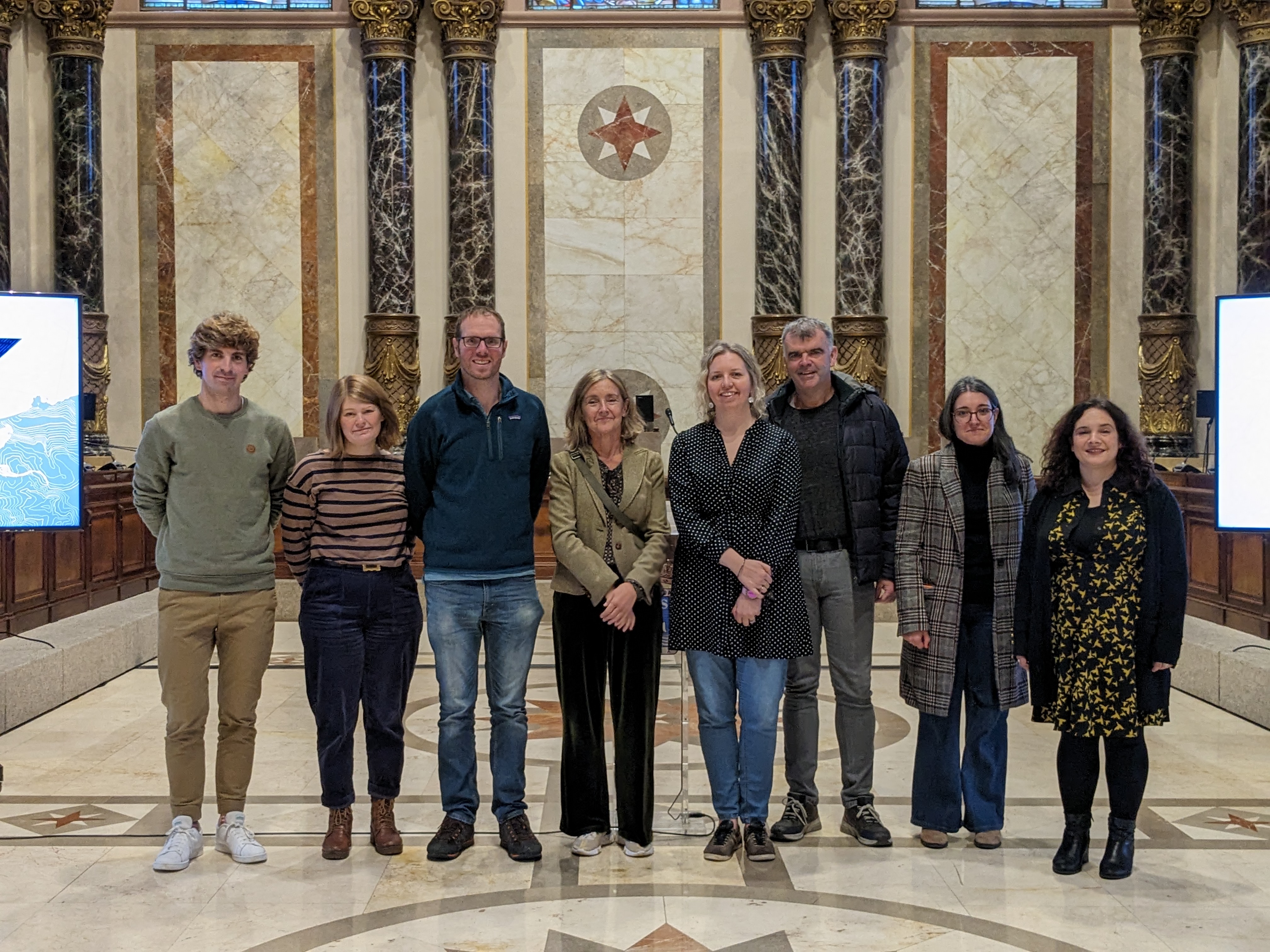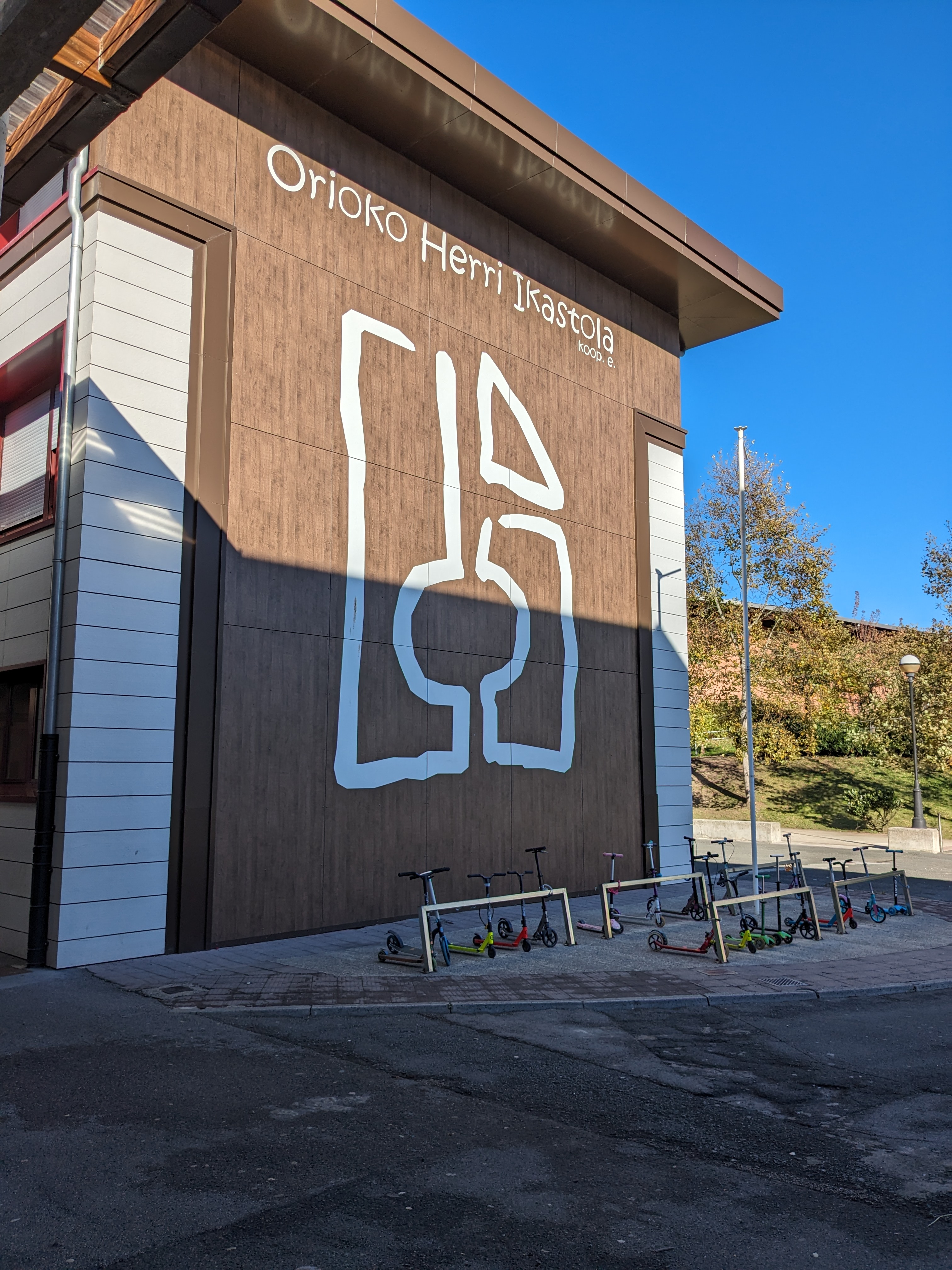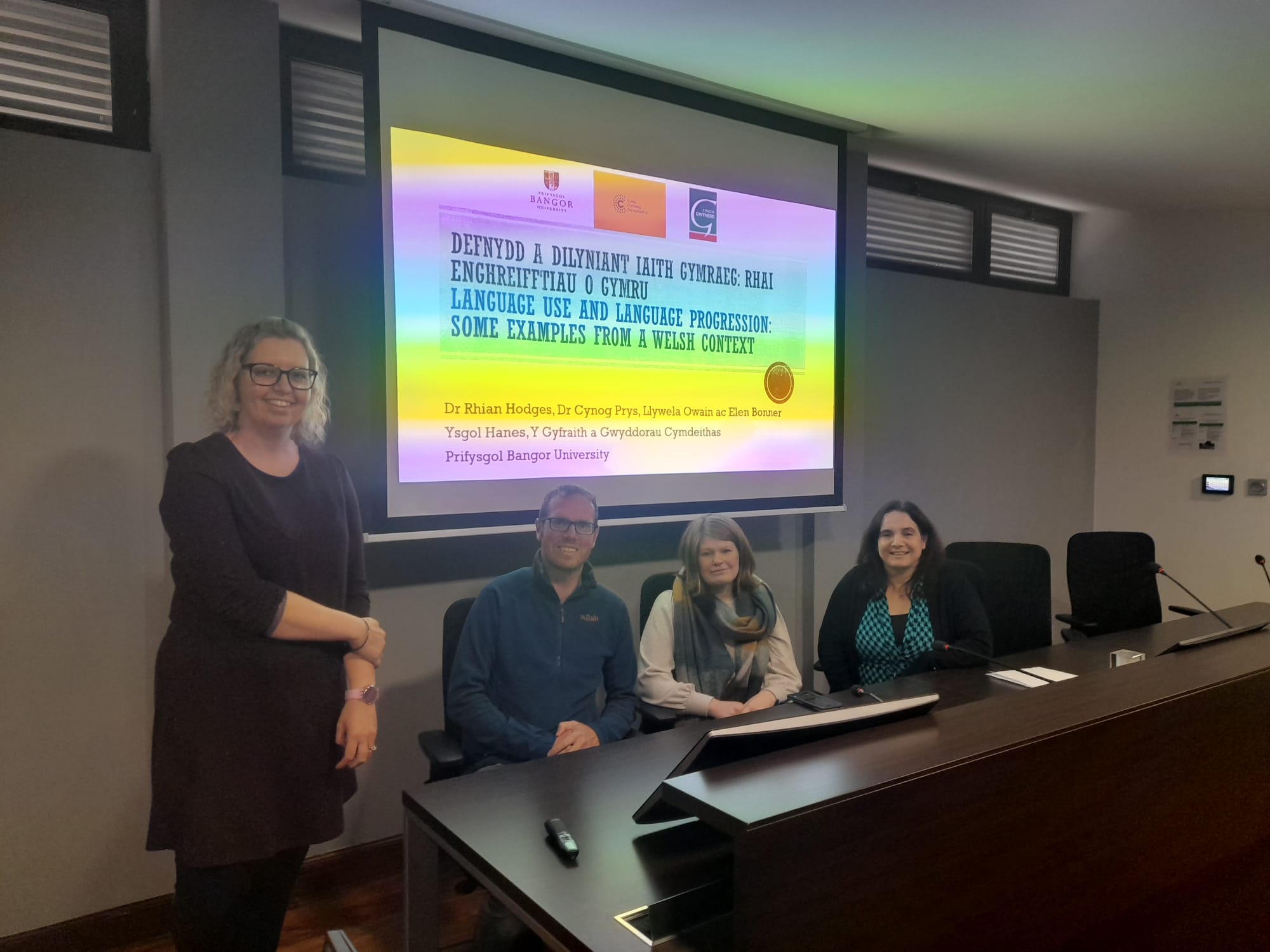Elen Bonner, a Coleg Cymraeg PhD student at Bangor University, reflecting on her trip to the Basque Country
November 2023 saw over 70,000 people protesting on the streets of Bilbao. Opposing the rulings of the Spanish courts against the normalization of the Basque language within the public sector was the cause of action. The Basques probably feel strongly about the opportunities they have to use their language. As researchers interested in minority languages, we are also interested in these opportunities, so we are taking the opportunity to undertake a research trip there sponsored by the Coleg Cymraeg Cenedlaethol's Innovation Grant.
Less than a week after the big protest I travelled together with my supervisors from Bangor University and a colleague from Gwynedd Council to the Basque Country to learn more about the linguistic situation there - and about linguistic progression in particular. What is meant by linguistic progression is the opportunities that speakers have to use language during different stages of their lives with the aim, for example, of maintaining opportunities to use the language in the transition from education to work. In that regard, we visited Ikestola (Basque-medium schools), a further education college, a university and the Council of Donostia, along with other linguistic institutions. You can read more about our experiences of linguistic progression in the Basque Country in a Gwerddon Fach article here.
My PhD research explores the relationship between the economy, migration and the Welsh language looking specifically at what drives the migration decisions of Welsh speakers from areas that have traditionally been considered strongholds of the language.
Why do some individuals choose to stay, others leave, while a percentage return again? Of course, there are implications for migration patterns from the point of view of the sustainability of the Welsh language with various organisations expressing concern about the emigration of Welsh speakers from these areas. I was keen to see if the Basque Country was experiencing similar challenges.
When visiting different organisations within the autonomous community, what struck a visitor from Wales was how similar the linguistic situation in the Basque Country is compared to ours. However, to my surprise, migration by young people from the Basque Country was not an obvious problem. In explaining the situation here in Wales, that is, that young Welsh speakers are leaving the strongholds, those I was questioning would listen attentively, but unlike almost every other topic of discussion they did not respond by sharing similar experiences. It was explained that the Basque Country has a strong economy and linked to this was their belief that there are a range of attractive opportunities for young people locally. As a result, the young people of the Basque Country tended to stay in the Basque Country. Thinking about Wales, does this offer a further justification for the need for programmes such as Arfor which aim to develop the economy in areas that are strongholds for the Welsh language?
However, the Basque Country faces other challenges in terms of migration. According to the young people I chatted with from Ikastola in an area with a high density of Basque speakers, they spoke the language in all aspects of their lives – at school, at home and during their spare time. In their opinion, the only zone in which they were likely to use Spanish on a day-to-day basis was when going shopping. Economic migration from South and Central America to the Basque Country seems to be a common trend as Spanish is a common language for both territories. Very often, immigrants find work in the retail sector (possibly because a lack of skills in Basque is a barrier to working in other sectors). A possible consequence of this is that the opportunities to use Basque within this particular sphere are limited for speakers of the language. It is therefore possible that the Basque Country faces similar challenges to us in Wales in terms of how to present the language to immigrants in a welcoming and inclusive way.
On my return to Wales I reflect on the warm welcome received in the Basque Country, and I hope that we too will be able to extend the same welcome to visitors who speak other minority languages at some point in the future. Eskerrik asko!



